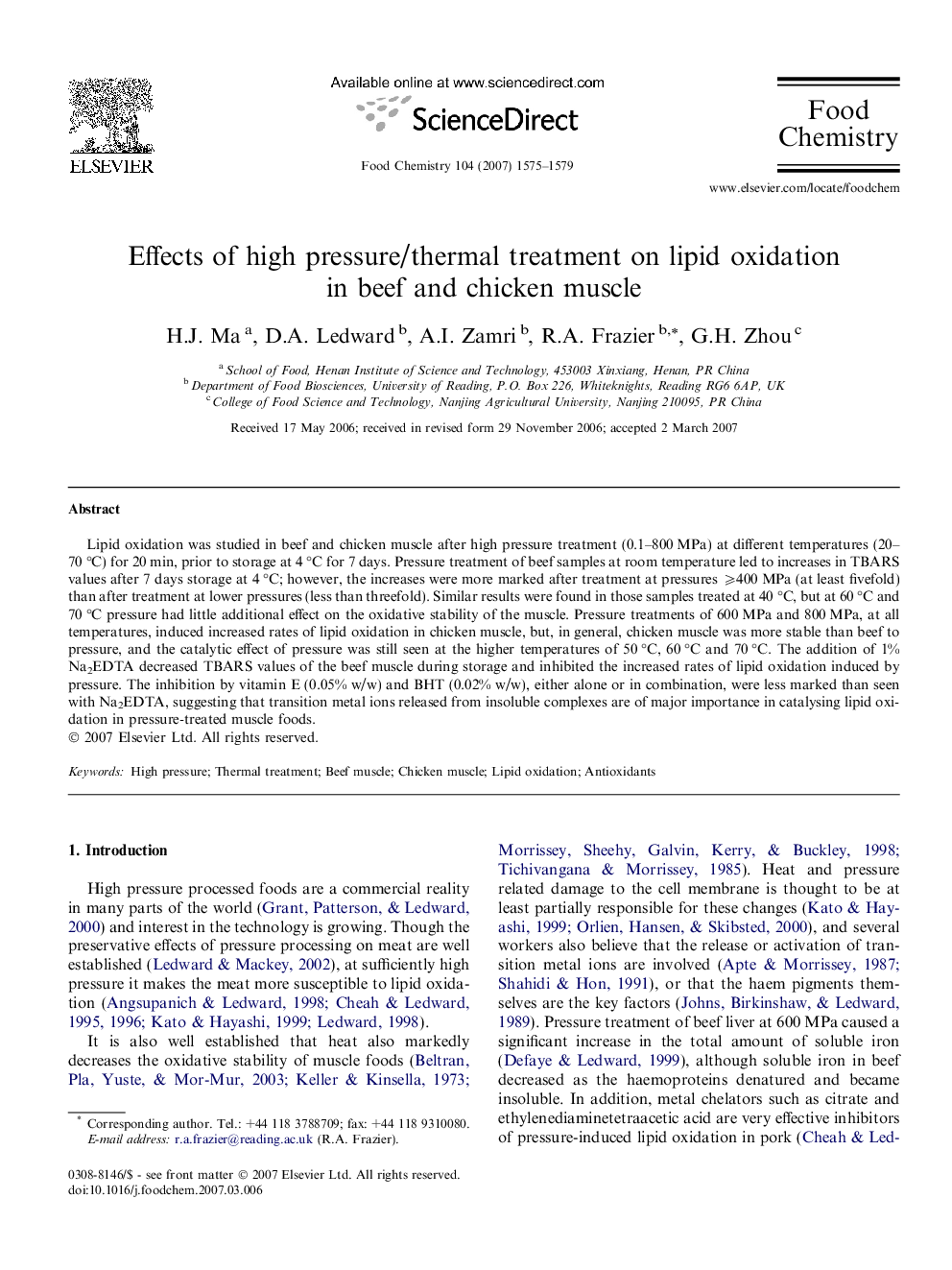| Article ID | Journal | Published Year | Pages | File Type |
|---|---|---|---|---|
| 1187519 | Food Chemistry | 2007 | 5 Pages |
Lipid oxidation was studied in beef and chicken muscle after high pressure treatment (0.1–800 MPa) at different temperatures (20–70 °C) for 20 min, prior to storage at 4 °C for 7 days. Pressure treatment of beef samples at room temperature led to increases in TBARS values after 7 days storage at 4 °C; however, the increases were more marked after treatment at pressures ⩾400 MPa (at least fivefold) than after treatment at lower pressures (less than threefold). Similar results were found in those samples treated at 40 °C, but at 60 °C and 70 °C pressure had little additional effect on the oxidative stability of the muscle. Pressure treatments of 600 MPa and 800 MPa, at all temperatures, induced increased rates of lipid oxidation in chicken muscle, but, in general, chicken muscle was more stable than beef to pressure, and the catalytic effect of pressure was still seen at the higher temperatures of 50 °C, 60 °C and 70 °C. The addition of 1% Na2EDTA decreased TBARS values of the beef muscle during storage and inhibited the increased rates of lipid oxidation induced by pressure. The inhibition by vitamin E (0.05% w/w) and BHT (0.02% w/w), either alone or in combination, were less marked than seen with Na2EDTA, suggesting that transition metal ions released from insoluble complexes are of major importance in catalysing lipid oxidation in pressure-treated muscle foods.
